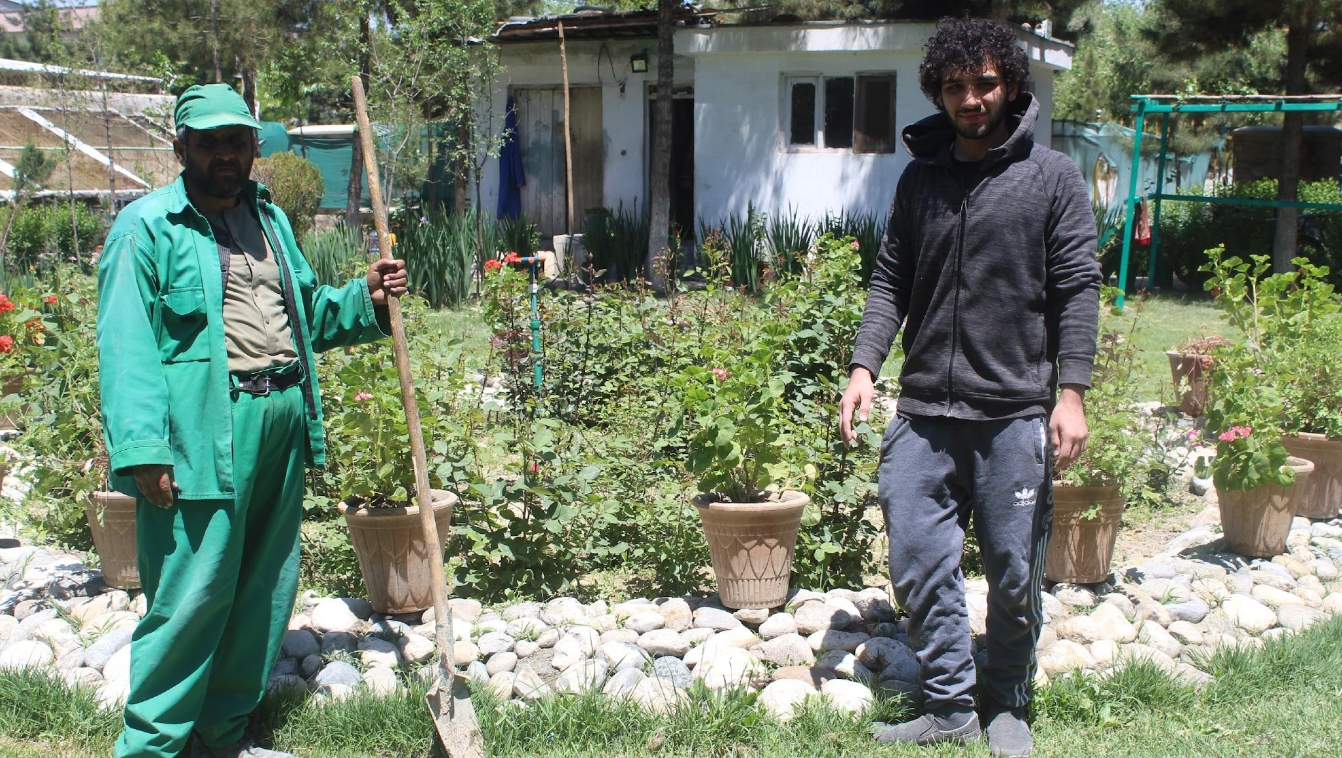Against a backdrop of what felt like insurmountable conflict and environmental challenges, Sameer Asefi wanted to take some grass roots action. So the 18-year-old began planting climate-resilient crops with people from his neighbourhood in Kabul, connecting with his local community in District #8 in an effort to build peace. And along with the crop planting, Sameer began educating his community on Positive Peace.
During his self-developed initiative, Sameer not only tackled environmental issues and fostered biodiversity, but promoted the eight Pillars of Positive Peace from the Institute of Economics & Peace (IEP). Positive Peace is the attitudes, institutions and structures that create and sustain peaceful societies. Research from IEP, the independent think tank, has shown that Positive Peace is an effective predictor of socio-economic resilience. Afghans educated by Sameer can utilise the eight Pillars to aid in recovery when confronted with crises, such as natural disasters.

Decades of conflict, combined with ecological threats, have left Afghanistan a fragile state. According to IEP’s 2024 Global Peace Index (GPI), Afghanistan is the world’s fourth least peaceful country. However, it is not only governance issues contributing to the country’s instability. Afghans are especially vulnerable to environmental disasters, such as droughts, earthquakes, landslides, and flash floods. Coupled with the effects of climate change, these issues only become exacerbated. IEP’s annual Ecological Threat Report (ETR) consistently ranks Afghanistan among the countries with the highest ecological threats. Yet Afghanistan has only produced 0.03% of the world’s global carbon dioxide emissions.
In 2023, Afghanistan’s rural population was recorded to be around 73%, meaning many families lack the proper infrastructure to combat environmental disasters. Provinces across eastern, central, southern and western Afghanistan have endured life-threatening amounts of rainfall. In 2022, flooding resulted in more than 180 deaths, with at least 8,000 others displaced from flash flooding alone. In October 2023, an earthquake ravaged the western Herat province, killing over 2,000. In July 2024, eastern Afghanistan suffered flash floods that killed 40 people and injured nearly 350 others. Stronger and more devastating environmental dangers are inevitable for the country’s future.
Afghans will continue to face the burden of environmental degradation until long-term resilience to such shocks is established. Unfortunately, this is a difficult thing to accomplish when political and governance issues have yet to be properly addressed. As stated in the 2023 ETR, without concerted international action, current levels of ecological degradation will substantially worsen across the globe. With minimal aid from local authorities or international organisations, many Afghans are left without much hope. Yet not all Afghans have accepted defeat.

IEP identifies their innovative pillars as the following: a well-functioning government, low levels of corruption, acceptance of the rights of others, good relations with neighbours, sound business environment, high levels of human capital, equitable distribution of resources and free flow of information. While aspects of all eight pillars can be identified in Sameer’s work, good relations with neighbours, particularly among young people in Kabul, is the most noteworthy. With over 60% of the country’s population under the age of 25, Afghans have a powerful tool at their disposal to enact vital change. By boosting relations among Afghan youth, Sameer has used IEP’s Ambassador Program to become a model citizen for positive change. This lesson holds true around the world. Whether in Afghanistan or elsewhere, the power of the youth is underestimated, and its potential to build peace is immeasurable.
“Being connected to our society, being connected to our community and working towards peace building and implementing the Eight Pillars of Positive Peace is the best thing that has ever happened to me,” Sameer said.

Created by the Institute for Economics & Peace, the internationally-renowned think tank, the IEP Ambassador Program provides an opportunity for individuals with both extensive experience in peace as well as those new to the field to gain concrete knowledge and resources to help foster peace in their communities.
Learn more